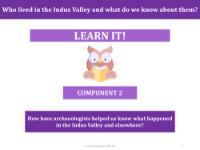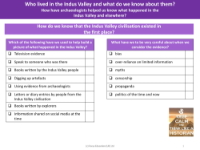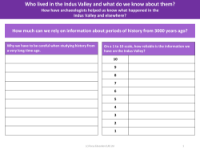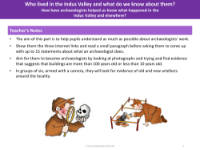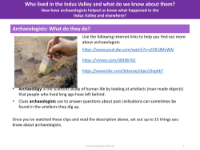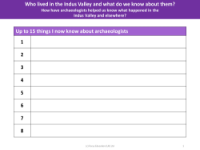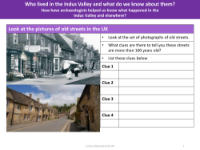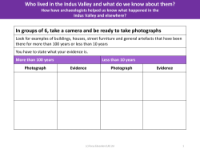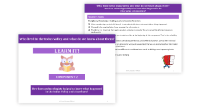How have archeologists helped us know what happened in the Indus Valley and elsewhere? - Teacher's Notes
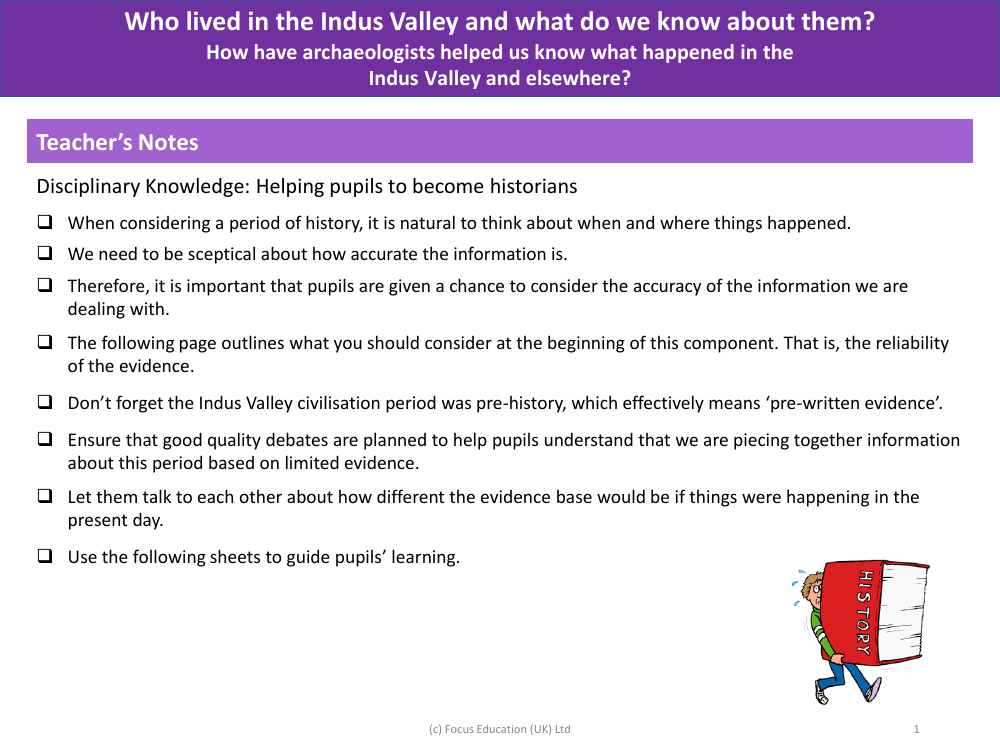
History Resource Description
Archaeologists play a crucial role in shedding light on historical periods, such as the Indus Valley civilisation, where written records are scarce or non-existent. Since the Indus Valley is considered part of pre-history, meaning there is a lack of written evidence from the time, archaeologists rely on physical artefacts and environmental data to piece together a picture of what life might have been like. Through meticulous excavation and analysis of objects such as pottery, tools, and remnants of buildings, they can infer details about the daily lives, social structures, and cultural practices of the people who lived there.
Teachers are encouraged to use archaeology as a means to help pupils think like historians, questioning the reliability and accuracy of the information gleaned from these ancient artefacts. Debates can be a valuable tool in the classroom to explore the concept of evidence-based history, comparing the abundance of sources we have for contemporary events to the sparse and often enigmatic remnants from prehistoric times. By engaging with this process, students learn the importance of critical thinking and the evaluation of evidence in reconstructing the past, recognising the contributions and limitations of archaeological findings in our understanding of ancient civilisations like the Indus Valley.
